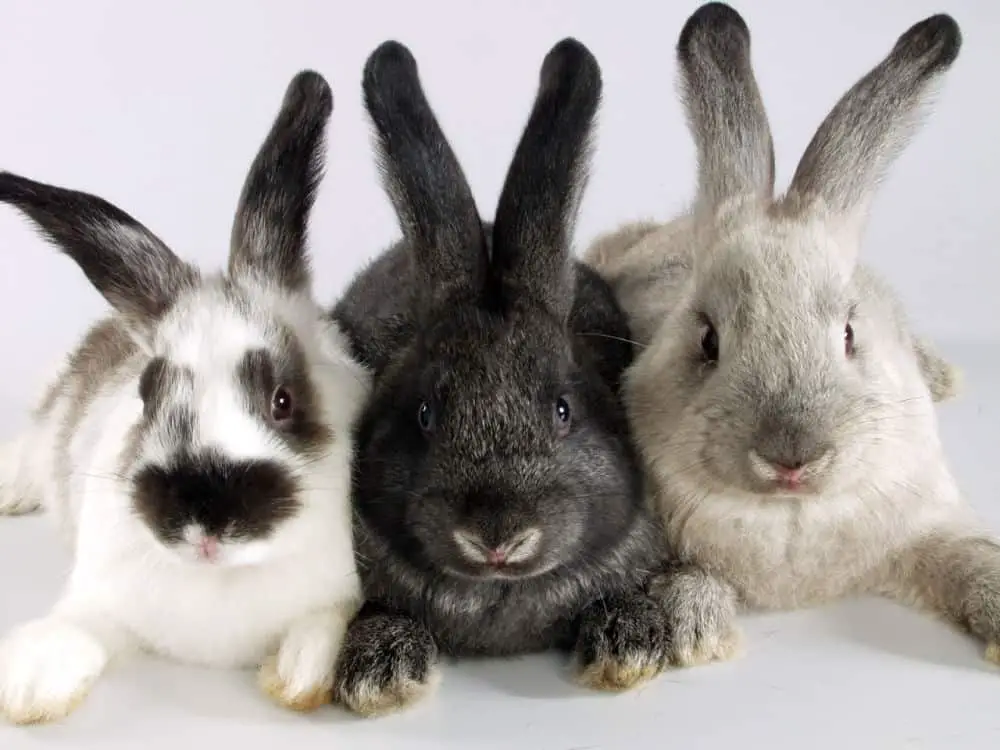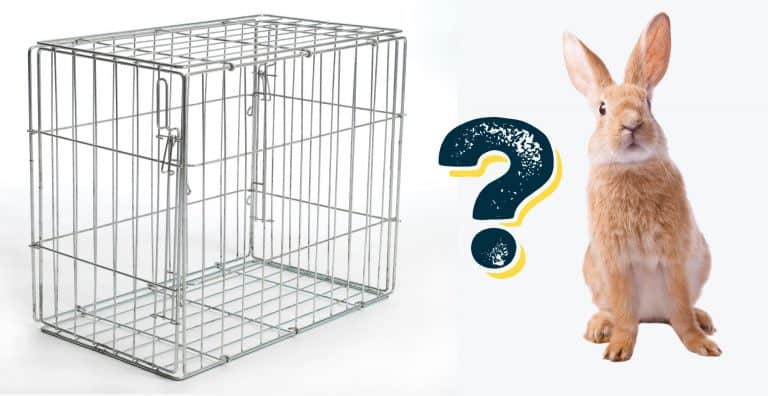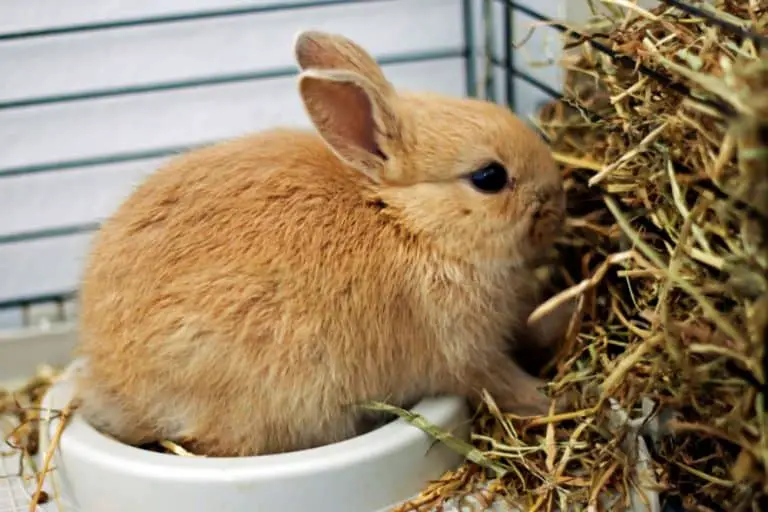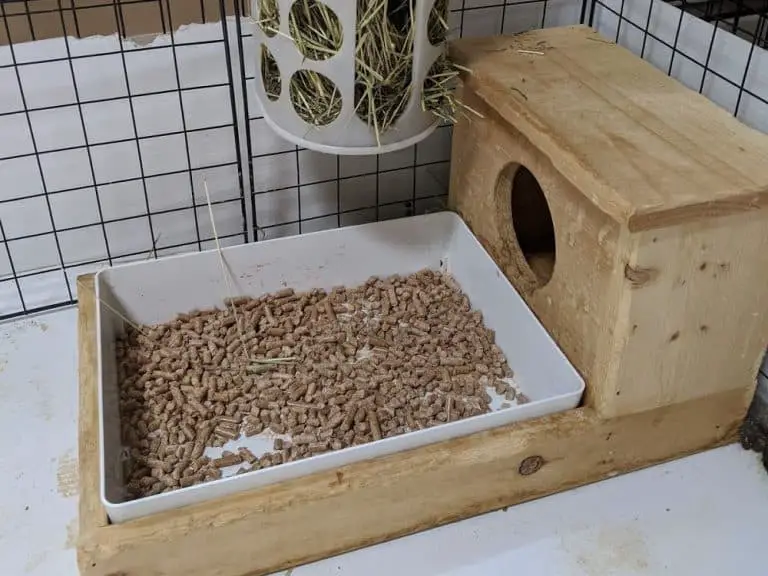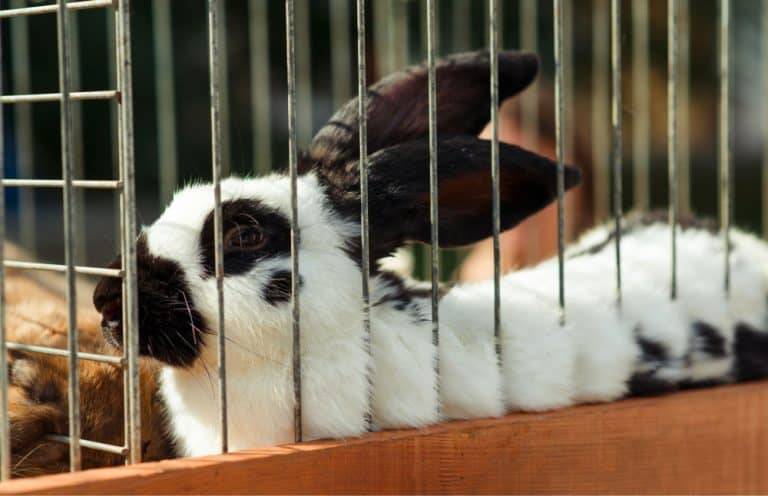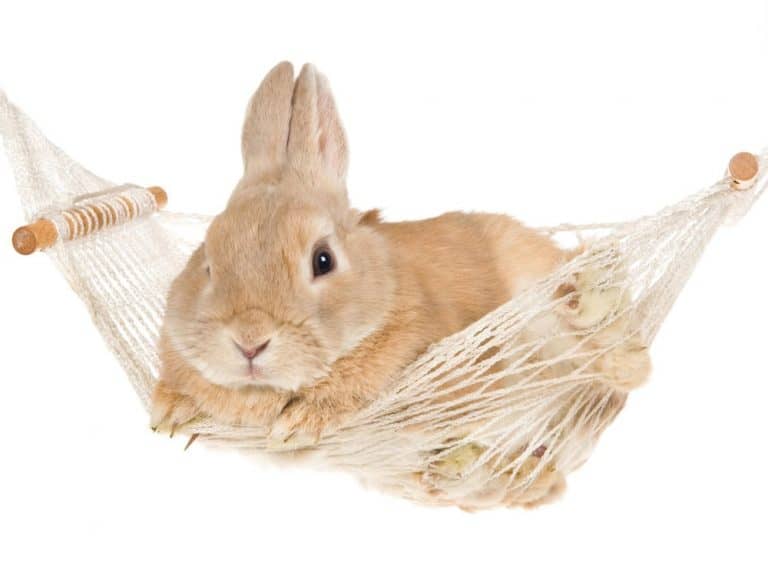Do Rabbits Make Good Pets? The Basics & What To Expect
Many people find rabbits alluring and adorable. Any time spent with a well-tamed rabbit will want you to spring into being a rabbit owner. But before you trek to the nearest pet store, you should do a little research. Luckily for you, you have found this blog where we do most of the hard work for you. In this article, you are going to have most of your questions answered. We will explore primary care and whether or not your living situation is the best to take on a rabbit.
Do Rabbits Make Good Pets?
Yes, rabbits can make excellent pets! With the appropriate housing, diet, exercise, and socialization, rabbits make wonderful companions for adults and children. Domestic rabbits can live between 8 to 12 years, sometimes longer, so if you decide to add a pet rabbit to your family, be prepared to care for it for the long haul.
Few people realize how social a rabbit can be. The typical pet rabbit is gentle and soft, but it can also be very outgoing and playful. With over 305 rabbit breeds around the world scattered over 70 different countries, each breed is unique. Some look different than others, while some are known to be very gentle. There is a breed suitable for every adult and family situation.
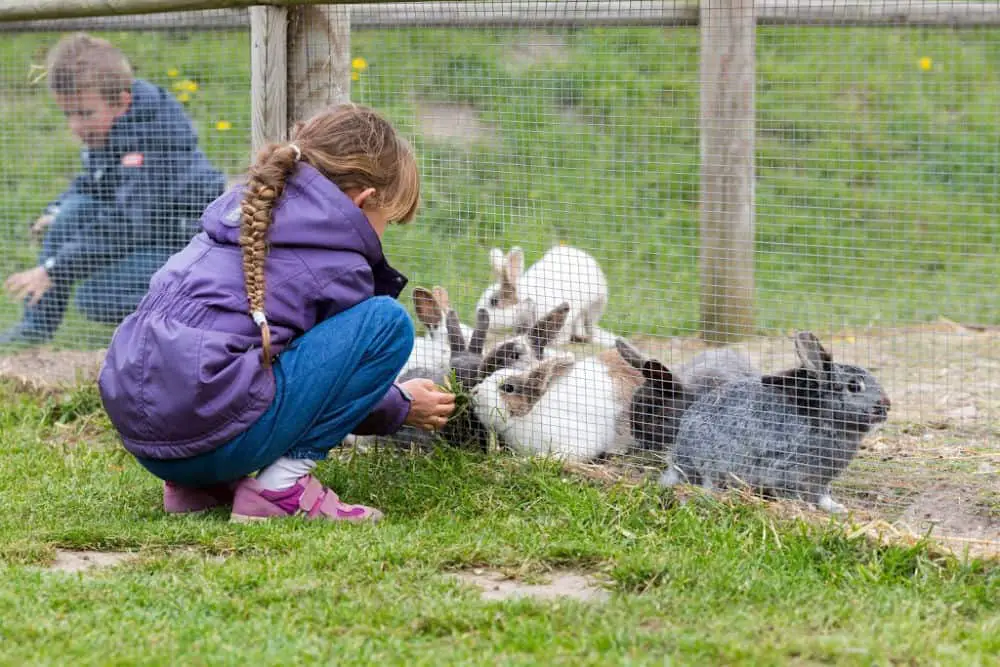
If you have young children in your home, you may wonder how a bunny would fare with small children. Rabbits make great pets for children for a variety of reasons.
- Most rabbit breeds have dense bones and are not as “breakable” like other small animals
- Gentle behaviors prevent any fears of rabbits
- Your rabbit will genuinely enjoy the company of your children
- Rabbits have longer lifespans than most small animals
Depending on your children’s age, they will need supervision with all pets. Setting up boundaries and teaching children how to handle them will start you off on the right foot.
Pros And Cons Of Owning A Rabbit
To get a good picture of what it’s like to own a rabbit, it is essential to look at the good and bad.
Pros:
- Bunnies live a long lifespan. Other small pets live at most five years, and most of the time, less. Rabbits can live anywhere from 10-20 years, depending on the breed. Longer lifespans give you a lot longer of joy and happiness with your pet. If you get a rabbit that has minimal health concerns, they could even live past 20!
- Rabbits can be just as loyal as dogs. They get happy when they see their owners and will come to you for comfort when socialized well. Rabbits show their delight by “popcorning” or jumping in the air.
- Having a rabbit can teach your child about responsibility. But don’t get your hopes up that they will do all the work.
- Another pro of owning a rabbit is that they are highly intelligent. Rabbits will remember who feeds them, can be potty trained, and learn tricks. Who would have thought?
- The biggest pro of owning a bunny is that they genuinely love the interaction. As long as bunnies are socialized from a young age, they will enjoy human interaction just as much as other rabbits.
- Rabbit enclosures are very easy to clean, which is helpful for the busy family.
- As mentioned before, there are over 305 breeds of rabbits. This is an excellent pro because it means that there is a wide variety of coat types, temperaments, and colors to choose from. There is a perfect breed for every situation.
- And most of all, rabbits are quiet. They won’t keep you up until 3 am barking, or waking you up early for food. Rabbits do make noise with daily activity, but it’s a lot less than other pet types.
Cons:
- Rabbits need a lot of interaction. If you are not home a lot, you will want to get friends for them. But, the more rabbits you have, the bigger the enclosure needs to be, and the cost per month increases.
- It is excellent that rabbits can live so long. But this can be a substantial commitment for some families. If the children lose interest in a year (which they will), you will have to dedicate your time to caring for them.
- Speaking of commitment, that also means that getting a rabbit is ultimately your responsibility. You can not expect a child to keep an interest in the full 10-20 years or more. If you can not take full responsibility, then a bunny isn’t for you.
- A con of every pet is the potential for biting, scratching, or kicking. While rabbits don’t typically behave in such a manner, they will if they feel threatened.
- Pet rabbits can be rather expensive. The average bunny can cost up to $75 or more depending on the breeding. To get a cage and all the necessary equipment, you can expect to pay $300 or more to get started. After all the initial fees, you will also likely spend $40 a month for food, bedding, and toys.
- Rabbits chew everything, and we mean everything. They will chew cords, furniture, carpet, hardwood floors, cabinets, and even baseboards. And even with proofing, accidents do happen, and things get eaten.
- Even though rabbit cages are easy to clean, they will need cleaning often. The average rabbit can poop 300-500 pellets a day. Daily spot cleaning will be required, and a complete sweep out can every 2-3 days.
- Our last con is medical. Rabbits can have medical conditions such as malocclusion, where the teeth grow faster than average and need trimming. They can also be prone to respiratory infections or broken bones with poor breeding. There are even some breeds that are prone to different diseases than others. These conditions are manageable, but specialty vets can cost more.
Owning any pet will have good and bad. But, if the cons are not a deal-breaker for you, chances are rabbits make the right pet for you. But, if you see some deal breakers, don’t worry. There are lots of other pets that might be a better fit for your family.
Rabbit Basics
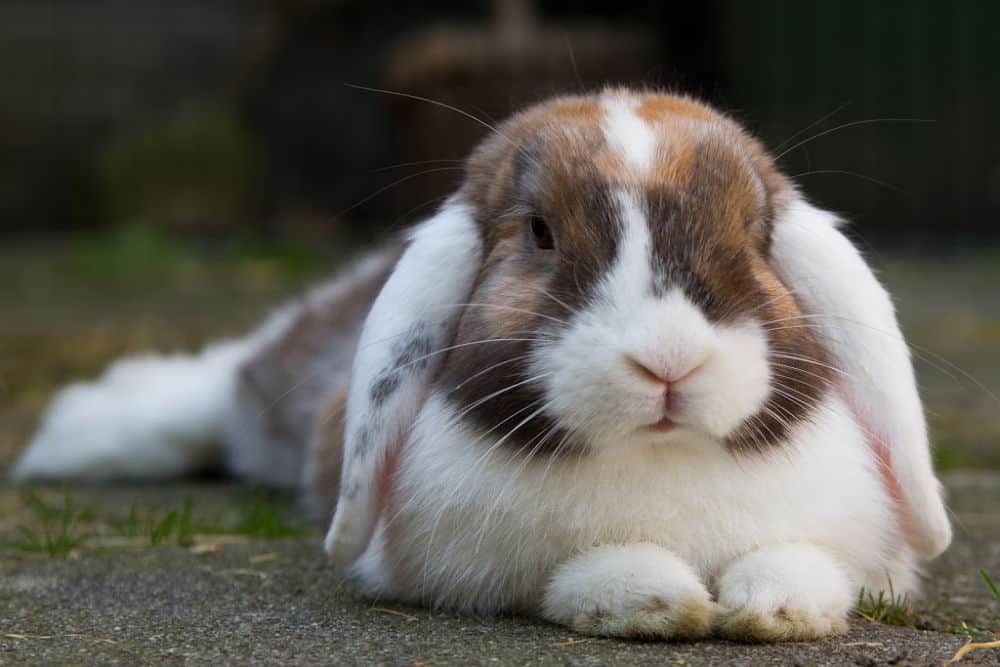
Now its time to talk about the basics of owning a rabbit. These are the bare minimum to have a happy little bunny. You are more than welcome to go above and beyond; in fact, your rabbit will be extremely grateful.
HOUSING – You will want to get a decently sized cage or rabbit hutch depending on where you are keeping them. The general rule of thumb is to have a pen five times the size of your rabbit when stretched out fully grown. Bigger is better, and you will want more room for each rabbit. If you live in an area that doesn’t get too hot or cold, you could opt for a rabbit hutch outdoors. Just be sure that it is predator-proof. Rabbits can be just as happy outside as inside. It depends on your situation and climate on whether this will work or not.
DIET – Rabbits eat a variety of hay, pellets, and fresh veggies. Timothy hay should be provided at all times and will be your bunny’s primary source of food. Next will be a portion of vegetables once daily, and some fresh pellets always available. These pellets should always be available, but should never be your rabbit’s primary source of food.
EXERCISE – Since bunnies don’t do well in cages all day, you will need to take them out to exercise every day. Your rabbit will need at least 24 square feet of space to run for at least 5 hours a day. If you have an outdoor enclosure, you could build an ample enough space to include exercise. If you have an indoor cage, you will need to rabbit-proof an area large enough.
LITTER TRAINING – It is best to litter train all indoor rabbits. It makes their cages more sanitary and easy to clean. Litter training your rabbit is easier than you think too. All you need is a litter pan and aspen shavings, wood pellets, or paper pellets. After you bring home your bunny, watch to see where he pees the most. Pick up a few poop pellets to add to the litter and place it in that spot. If your rabbit chooses another area, keep moving the pan until they are using it without issues.
CHEW TOYS – Rabbits love to forage and chew. It is best to give them plenty of wooden toys to toss and munch all day. Not only does this keep them entertained, but it also helps them grind their continuously growing teeth.
BUNNY-PROOFED AREA – Lastly, you will need to rabbit-proof your home. This means covering all small holes, wires, placing guards under couches, and even getting gates to keep your rabbit contained. A lot of people choose to dedicate a single room as a rabbit area. Others convert their basements into a rabbit paradise. And others rabbit proof their entire home and let them free-roam all day. Whatever your case may be, if a rabbit can see it, it will be chewed. If their head can fit through, their whole body can fit too.
Rabbit Breeds

So now that you have all your rabbit basics, you might be wondering about what breed of rabbit is the best. Well, with so many amazing breeds, it can be hard to narrow down the best kind. But, here are a few of the best breeds for beginners.
Rex
The Rex is the most common type of pet rabbit. The Rex is excellent with kids and has strong maternal instincts. They will try to mother just about anything that they see fit. Rexes are also very playful and love attention.
Mini Rex
These mini rabbits have a lot of the same quality that we know and love from the Rex. But since these rabbits are smaller, they can be great for the first time owner. These breeds are typically considered hypoallergenic, though no rabbit is truly allergen-free. The Mini Rex just sheds less than other breeds.
Mini Lop
The Mini Lop is perfect for families with older children. These guys are playful and energetic. They will love playing with you and your family as much as they can. Their calm demeanor and desire for attention make them great pets for the first-time owner.
New Zealand Red
These bunnies are super relaxed and chill. They make great pets for the beginner and are a go with the flow type. They love their people and company.
Flemish Giants
Flemish Giants (a.k.a. “Gentle Giants”) make excellent companions and sweet, adorable family pets. When kept as indoor house rabbits, these rabbits usually hop around and sit comfortably on anybody’s laps. As their name suggests, they are a very large breed of rabbit. They typically weigh about 10 to 20 pounds and can grow up to 30 inches long.
Do You Think Rabbits Make Good Pets?
After learning the rabbit basics, what do you think? Is a rabbit the next pet for you and your family? These adorable and fun little creatures could be the best commitment you make in your life. Let us know what you think in the comments!
Related Questions
Are rabbits low maintenance?
Although rabbits don’t need to be walked like dogs, rabbits are still not really low–maintenance. Their housing and litter box need daily cleaning, and fresh food and water must be offered daily, including a salad of well-washed, dark-green leafy vegetables.
Do rabbits recognize their owners?
Any rabbit owner who interacts with his bunnies regularly will tell you that rabbits can be just like dogs or cats, and get to know their owners very well. They recognize them by sight and voice and may even be taught to come on command. Some free roam bunnies will even follow their owners from room to room and jump up on their laps when called.

